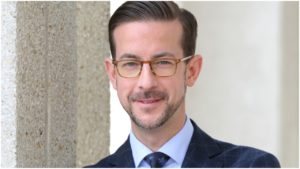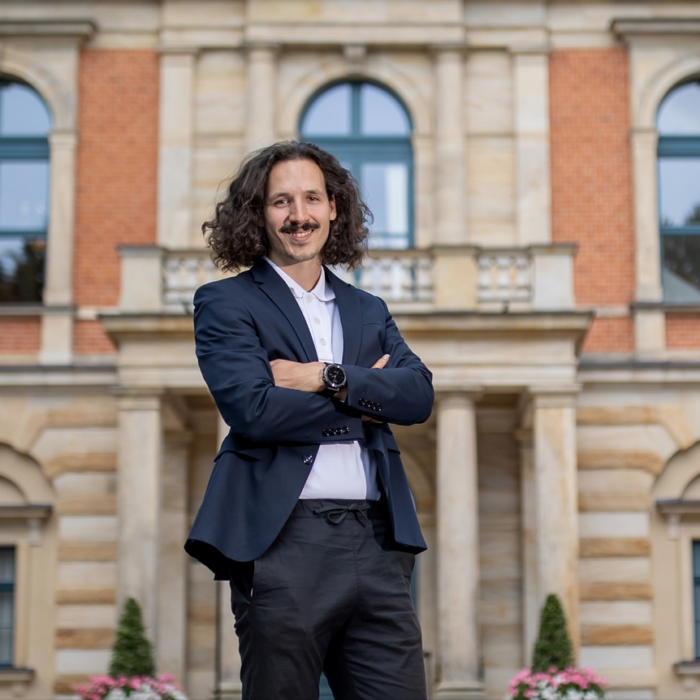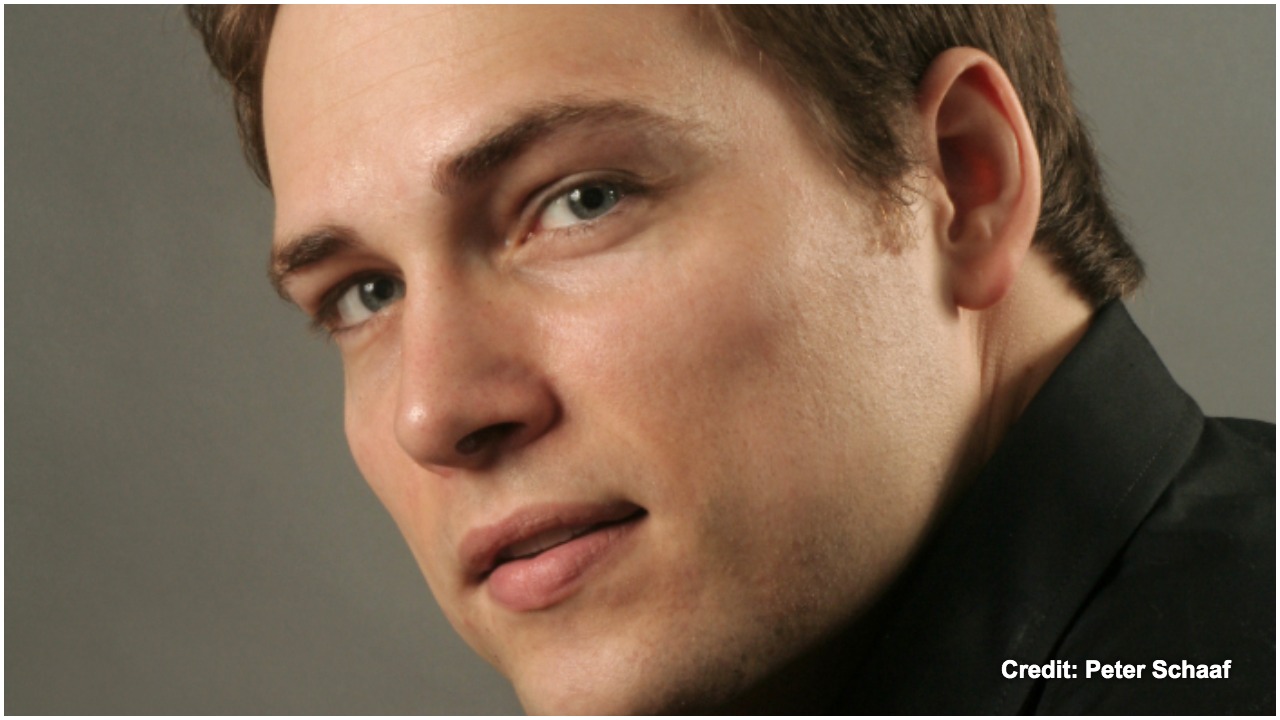
Q & A: LA Opera CEO & President Christopher Koelsch on the Company’s 2020-21 Season, Renée Fleming & ‘Breaking the Waves’
By Francisco SalazarThe LA Opera announced its 2020-21 season featuring five main stage production, four new productions and a number of second stage productions through its Connects and LA Opera Grand sections.
Among the composers featured in the programming are Missy Mazzoli, Verdi, Mozart, Handel, and Rossini.
In light of the new season announcement, CEO and president of the house Christopher Koelsch spoke with OperaWire about the decision behind the choices made with the upcoming slate, the importance of “Breaking the Waves,” The English Concert, and the continued collaboration with superstar soprano Renée Fleming.
OperaWire: How did you arrive at the programming for this season?
Christopher Koelsch: We used the usual curatorial idea which was to try and cover as much of the art form. We try to cover the largest span of time possible from the baroque to the contemporary and we try to aim for a diversity of language and style.
This season we have three languages. We try to create a dialogue between the preservation and illumination of the past and the creation of the future for the art form. So its diversity of perspective is what we do. We try to have the anchor pieces of the core repertory but also forge a connection to what the future of the art form can be.
OW: Next season you are bringing “Breaking the Waves,” a work that is gaining a lot of recognition around the world. Tell me the importance of staging this work?
CK: We have committed ourselves to making sure we have a contemporary voice on the main stage. We have done this over the last nine years and we want to make sure that these new voices are heard. The fact that “Breaking” the Waves” is potentially a canonical title is a bonus. But I think there is particular pressure to be put against Wagner and Mozart and Verdi but I feel confident that “Breaking the Waves” can hold its own.
The opera will be shown in its original production from Opera Philadelphia. But what is interesting is that when we created LA Off Grand, we wanted to create and build a bridge to the future and the idea to bring Missy Mazzoli and James Darrah to the main stage after getting their start in the LA Off Grand stage is hopefully a proof of concept that we are building the bridge to the future of the art form.
OW: The English Concert returns to the stage. Tell me about the continued collaboration and how you feel that will continue to work in the future?
CK: Part of my desire is to represent every major period of composition within the art form so that gives people a lot of different entry points and from my point of view you also understand Phillip Glass better when you understand Monteverdi. And I like those programming choices.
Over the past years we had really neglected baroque music because we were so focused on Wagner and Bel Canto and because of my taste and because of our mission to represent all types of music, I had worried over the lack of baroque representation. And we had done this incredible baroque representation of “Orfeo ed Euridice,” which was so successful with critics and audiences. I was looking for a way to make sure that we had baroque music as a part of every season.
So that is when that conversation began and I had the privilege of experiencing some of those concert versions in Carnegie Hall and I thought it would be beautiful to have that as part of the season. I believe that it will continue into the future.
OW: Tell me about the collaboration between Renée Fleming and Kevin Puts. That work premiered at the Tanglewood Festival and is now coming to LA. How did this come about?
CK: We are one of the co-commissioners of the piece which speaks to Renée’s potency in the marketplace. We have an incredible relationship and we have been looking for ways to make sure that she is featured in every season. So when she mentioned this, this project seemed like a home run.
It is also a pleasure to have Rod Gilfry, who is of course singing the role of the Father in “Eurydice.” He is now our longest standing member in our artistic community. He sang the role of the Herald in our inaugural season. We are very invested in multi-season and multi-project relationships with certain artists and Renée and Rod are some of these artists.
So for me it’s just a way of bringing two family members together and we have never had music by Kevin on the stage so this is a way of introducing his music to our stage.
OW: Gregory Kunde is making his debut in LA Opera in not one but two productions. How did this debut finally come about?
CK: We had heard Greg a couple of times. James Conlon and Plácido Domingo had worked with Greg and we were astonished by the potency of the voice and the growth of it. And the repertory that hew works on now is some of the most challenging. And one of the challenges of casting an opera is who are the voices worthy of those roles.
Verdian tenors are in short supply and so when you find one you want to create as many opportunities for that individual. So I’m thrilled that we can get him twice in one year. And I think people in LA will be astonished to hear him especially those that heard him 20 years ago in Mozart. I find it so wonderful how his artistry has grown and the wealth of experience he brings to our company.
OW: Tell me about the productions you are doing on the main stage. They are all new expect for one. How did you find them?
CK: “Tannhäuser” is the only revival in the season but we have a new director and choreographer for it. But the other five productions are brand new to our stage.
The “Trovatore” was a last minute addition to the season and we had seen it at a board trip this summer. What Francisco Negrin did was to introduce Azucena’s mother and the child in mute roles and that is a revelatory directorial choice that grounds the story and gives it a realism that makes the audience realize that the emotions have a foundation. That the hyperbole is actually grounded in recognizable figures. I love the music and the piece and those two gestures transform the piece and make it one of the most moving evenings I have had. It’s one of James Conlon’s favorite pieces and he has never conducted it with our company and we have not done the piece for 16 years. It’s tough to cast and the stars aligned and it is a great way to kick off our 35th anniversary.
The “Aida” I saw a number of times and we have had a very long relationship with Francesca Zambello and for this production she brought in this LA street artist RETNA to do part of the production. And those conversations with RETNA began with us for a potential “Norma” and Francesca was here at the time and was amazed by RETNA’s designs. If you drive around LA you’ll find RETNA’s designs everywhere so in a way it’s taken a lot of time but it feels like a home coming.
For “Breaking the Waves” I was at the premiere and I fell in love immediately and that is a conversation that we started many years ago and we thought about it many ways to bring the piece to LA. We were thinking about whether we wanted Missy to do something new or do a new production for the opera. But we kept coming back to the idea of bringing the original production because it’s so perfect and pure and I think Missy feels the greatest kinship to this work.
The “Cenerentola” is now an eight-year quest to bring Stefan Herheim to LA. This production is from Amsterdam and it’s emblematic of his style. This is his U.S. debut and we are happy that we have been able to introduce some of the most exciting opera directors from Europe with our company.
I had seen that production of “Don Giovanni early. “Don Giovanni” is a problematic text for a new set of reasons but the old set of reasons that it was problematic was because the dramaturgy of the second act can become quite entangled. I think Kasper Holten came up with an ingenious way of making those scenes have a dramatic momentum and thrust and the design of the production is very fresh and it’s unlike any “Giovanni” we have done.
OW: In the LA Off Grand Opera section you are showing “Get Out,” the Oscar nominated film. How does this connect to the opera world?
CK: That’s the sixth year of that program and it was born specifically for non-operatic related works. I was looking for a programmatic connective tissue between “Einstein on the Beach” and “Akhnaten” at the time. It was the idea that Off Grand was kind of experimental and it was a strategic notion that we have had about trying to assert a connection between the creative capital of Los Angeles and classical music. But it was an experiment and it was success and because of that it created an opportunity for the idea of commissioning artist that we admire to new work.
For five years we had done it a certain way and we felt that it was time for a little bit of a refresh. Michael Abels had worked with us many years ago and we commissioned a piece from him for our connects program and he is working on a big project with us for the future. So we think of the LA Opera as having three programs and they work as independent city states. So Michael had worked in Connects and for me this is a beautiful opportunity to bring Connects and Off Grand closer through a hugely popular film. It is a way of changing people’s relationship to the opera company and making it look anew. People don’t always find a way in and this makes people look at the company differently.


